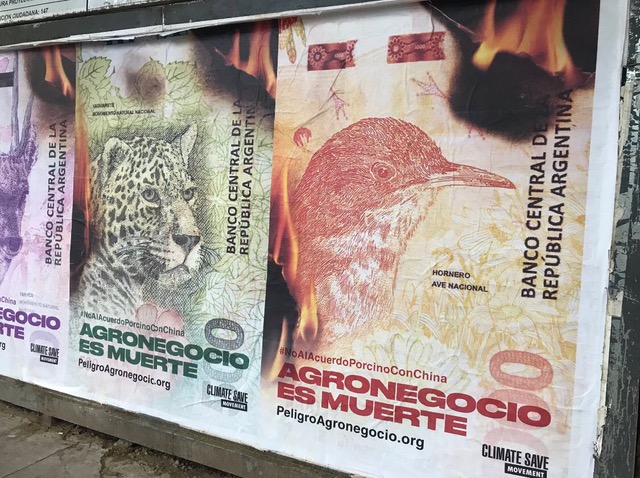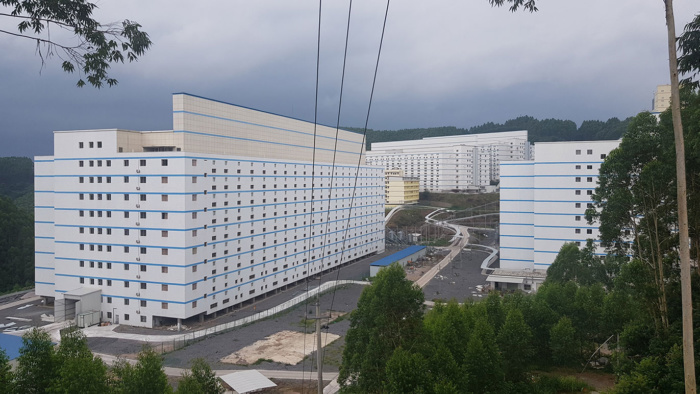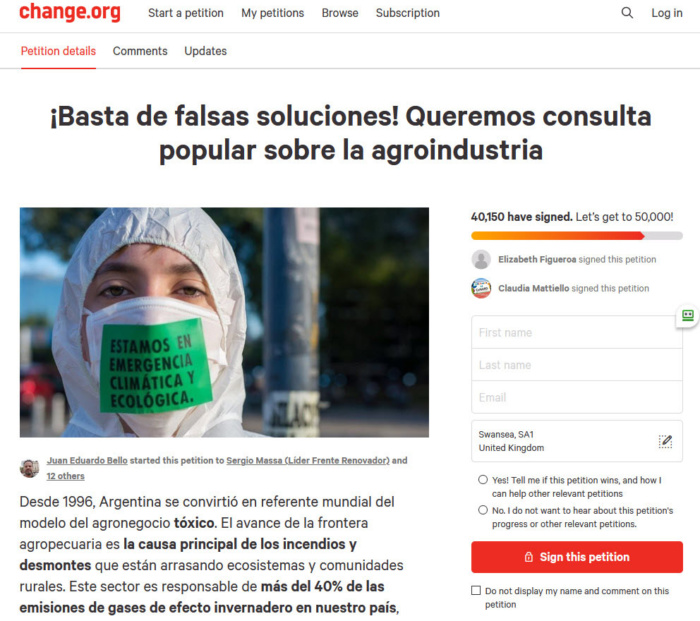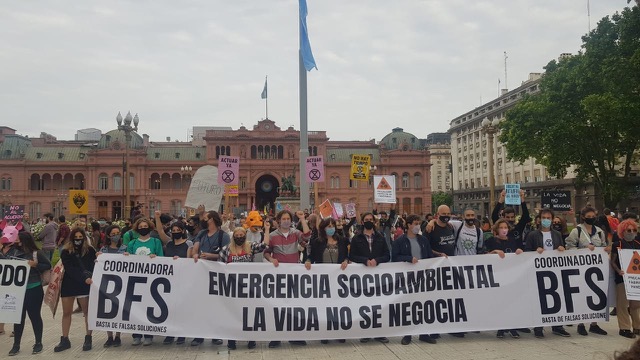A double whammy
Like most national leaders, Argentina’s president Alberto Fernández has had a difficult year. Most of his electoral promises targeted the stabilisation of the country’s economy, after his predecessor, the conservative Mauricio Macri, left the country with an economy which has been contracting since 2018, an inflation rate close to 55 per cent and overall debts of US$323 billion owed to multiple creditors.
The ongoing pandemic and the counter-measures taken have now catalysed the previous deficiencies and piled pressure on both society and the economy. According to UNICEF, social inequality is on the rise as a nationwide unemployment rate of 13.1 per cent forces 7.7 million children and adolescents to live in poverty. An additional 1.8 to 2.1 million children are threatened by extreme poverty.
Argentina Contra El Hambre is a government programme supposed to address this worrying trend by supporting the most vulnerable. Yet, in the shadow of the Covid-19 pandemic, the programme seems to be a step back from the ambitious pre-election concern of the restructuring of the ‘basic food basket’. ‘If you want justice, solidarity, employment, public education and public health, then let’s work together to build the Argentina we deserve’, Fernández was quoted prior to the election day.
It goes without saying that the pandemic hit Argentines at the worst possible moment and halted Fernández’ realisation of electoral promises. Instead, he found himself confronted with the enormous task of balancing remedies for existing economic and socio-political problems with a whole raft of new ones brought by the Covid-19 virus, only three months into his presidential term, which started in December 2019.
Light at the end of the tunnel?
One of the earliest and strictest lockdowns in the world may have reduced Argentina’s rate of infection, but by closing down much of the economy it has brought the country a step closer to another debt default.

Now, thanks to an unexpected offer from Chinese president Xi Jinping, Fernández must be thinking that a turn-around is within reach. Just when Argentina’s economy seemed to be at its darkest hour, Xi proposed a US$ multi-billion investment in the domestic pork meat industry. The offer promises to increase annual production of pork meat by roughly 200,000 tonnes to an overall of 900,000 tonnes within six years.
To reach the goal, China has offered to invest US$3.8bn immediately. The money will finance the necessary industrial infrastructure: the construction of 25 pig farms in Argentina’s northern provinces. To visualize what such farms might involve, it helps to look at similar projects in China. One of the newest, in Guigang in southern China, can house up to 15,000 pigs in a 12-storey factory-like facility designed to prevent the ingress or escape of pig-borne diseases.

If the Argentine project succeeds, it should create about 50,000 jobs and an annual revenue of US$2.5bn. While acceptance of this offer would mark an important first step towards the consolidation of the country’s economy, critics such as Guillermo Folguera and Flavia Broffoni have raised concerns about the deal’s ecological compatibility and the conditions in which the additional 10 million pigs would be reared.
Attempting to gain political attention and simultaneously respect the counter-pandemic restrictions, a counter movement was first formed online before it was taken to the streets. Petitions with hundreds of thousands of signatures had sufficient impact to be heard by the Casa Rosada. As a consequence of this public pressure, Argentine representatives halted the negotiations, and drew up a much-needed but short section dedicated to the protection of the domestic flora and fauna. The negotiations are now due to be resumed.
An agreement that could jump-start the economy
This project could be a significant first step towards restabilising the country’s economy after a rather worrying year.
Argentina was the third-largest soy bean producer in the world in 2019, Soya and soya derivatives were the single most important product, accounting for roughly 15% of Argentina’s exports of which most is exported to China (> 12,000tn in 2017). A growing pork meat industry would contribute to this strong performance, generating jobs within the industry and generating demand for fodder based on soy and other crops. Employment would increase gradually over the course of six years until the industry reaches its intended capacity, with a short-term rise initially in construction jobs to build the new farms and infrastructure.
Some 25 industrial sites have been identified, in the provinces of Catamarca, Chaco and Santiago del Estero. As these are below the 0.83 national average on the Human Development Index, increased revenue and taxes from the new industry could be of great use to improve local social infrastructure.
These factors have certainly convinced the Fernandez administration to take the Chinese proposals seriously. Leading advocate of the project with active participation in the ongoing discussion, Argentina’s Minister of Productive Development Matías Kulfas, refers to an ‘enormous opportunity’ and does not see ‘negative aspects’, as this US$ multi-billion investment could spark the turn-around in what is presumably one of the most critical years for the Argentine economy in the past 20 years. ‘China is one of the biggest demanders in the world market and Argentina has successfully managed to position itself as a supplier’, Kulfas says. Nevertheless negotiations have come to a halt as an organised opposition has begun to articulate serious criticisms.
Petitions, marches and social media mobilisation

The project’s opponents, like Guillermo Folguera and Flavia Broffoni, are mainly drawn from a scientific and environmentalist background and have collected hundreds of thousands of valuable signatures on several petitions. Both are campaigning against the agreement because of the drastic implications for the environment. Broffoni said, ‘The collapse of our civilisation is unavoidable, but we can learn to collapse better’, while Folguera stated ‘[…] The zoonosis and death of pigs in the Eastern country [China] not only make the opportunity, but express the very nature of the project. Argentina is bringing to its territory what China explicitly wants to avoid based on its recent experiences and the related risks’.

To better understand their arguments, it helps to take a step back and look at the bigger picture and thus the motives behind China’s proposal.
When in trouble, export your problems
Two main drivers are likely to have caused Xi Jinping to seek international business partners for China’s growing appetite for pork: a 25 per cent reduction in China’s domestic stock due to African Swine fever; and the Belt and Road Initiative (BRI), a foreign policy strategy.
While officially BRI is intended to strengthen international cooperation and economic ties, it must be set in context. China has declared a target of becoming carbon-neutral by 2060, so that a number of attempts to outsource environmentally questionable activities and industries have been observed over the course of the past few years.
One example is the failed proposal to invest US$2bn in a coal operated power plant in Kenya, rejected thanks to a strong coalition of adversaries, who successfully lobbied against the dire environmental consequences, and were backed by a decision of a Kenyan court.
Investments of this kind need to be seen in the light of the policy objectives of the BRI. While BRI funds may provide an economic boost to the prospective trading partner, there is an undeniable risk in importing the environmental downsides that the Chinese government is trying to reduce within its own borders.
In Argentina, the opposition’s main environmental concerns focus on the extraordinary quantity of water that will be required for the sows and the large scale deforestation required to provide land for growing fodder.
The social movement that unites behind the hashtag #BastaDeFalsasSoluciones particularly criticised the governor of Chaco, Jorge Capitanich, for his contractual agreement with Feng Tian Food, giving the green light for the construction of four industrial farms. In Chaco, where the lack of infrastructure means that many households have no access to piped drinking water, a commitment to deliver 7,000,000 litres per day to the industrial farms is very controversial. According to the City of Buenos Aires government, which assumes a daily demand of 180 litres per person, 7,000,000 litres could provide for 38,889 Argentines.
Although the deal has not yet been signed, it appears that some of those involved have taken matters into their own hands. This year has seen a massive increase in fires, many believed to have been started deliberately.. The Secretary of Environmental Control and Monitoring stated that ‘most or all […] [fires in the Delta of the Parana River] were not incidental or accidental but provoked’ and that this was presumably ‘to clear land for livestock or agricultural production’. Sadly, the fires have now devastated more than 400,000 hectares and significantly decreased local biodiversity.
Argentina at the crossroads
What originally seemed like a great opportunity has morphed into the source of a deep societal division and for drastic actions, which seem to have taken the country’s leadership by surprise. While securing the investment would undeniably benefit an ailing Argentine economy, it may have environmental consequences beyond the deliberate arson which has cleared so much land and rendered it unusable other than for farming. In one way, the probability of an Argentine refusal may have decreased as it would make the previous destruction of land entirely pointless.
The Fernandez government will therefore have to reconcile two deeply divided factions. Moreover the present coronavirus pandemic has lent strength to the concerns of people who fear the potential for industrial-scale pig farms to harbour and spread viruses among the human population.
The case of the Kenyan coal-fired power plant suggests that a strong legal framework might be the first step to achieving a compromise. It is the lack of such a framework, coupled with the fact that Argentina is the first and only country to have legalised genetically modified wheat, which leaves the country open to highly questionable investment proposals with all their attendant risks with.
Therefore, Fernandez finds himself at a crossroads. If he chooses to consolidate the country’s economy with foreign investments, he must legally secure his country’s future against exploitation. As he sups with his Chinese counterparts, he would do well to remember Virgil’s adage: ‘I fear the Greeks, even when they bring gifts’.

